An initiative in Artibonite illustrates the sector’s potential for economic success
From a monthly average of 3 tons in 2020, the company shipped 24 tons last June.
« Haitian lalo can gain popularity around the world and be competitive in the U.S. market, » Fabias Voltaire, director of Ayiti Vizyon pou devlopman peyi m, told AyiboPost.
This company from Artibonite specializes in the export of food products.
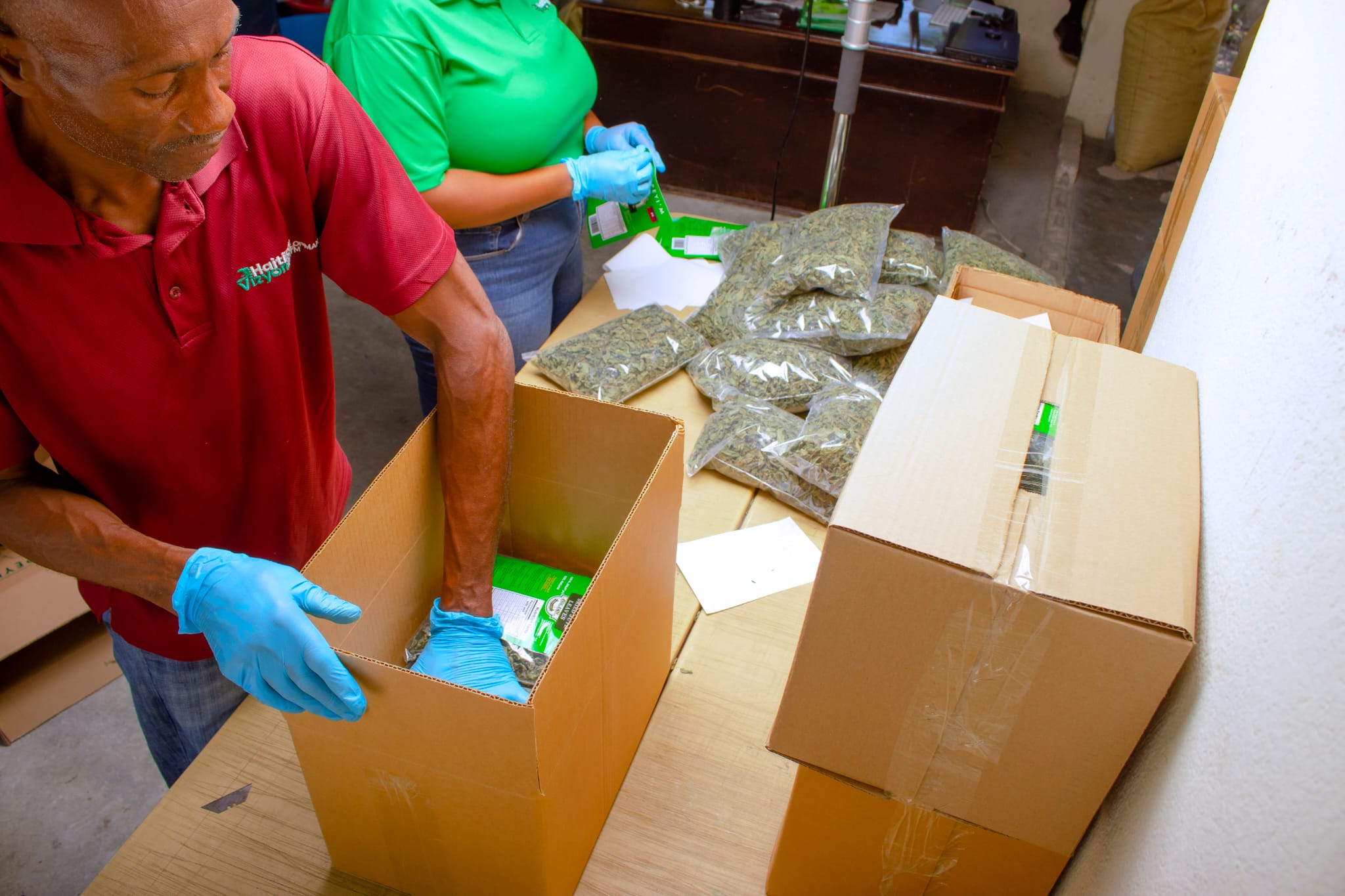
Ayiti Vizyon employees pack lalo in a box for export.
The 700% monthly increase in its lalo exports to the United States in less than 4 years proves – according to the official – the international appeal of the product.
But to thrive, the industry is calling for investments in infrastructure as well as an end to gang violence.
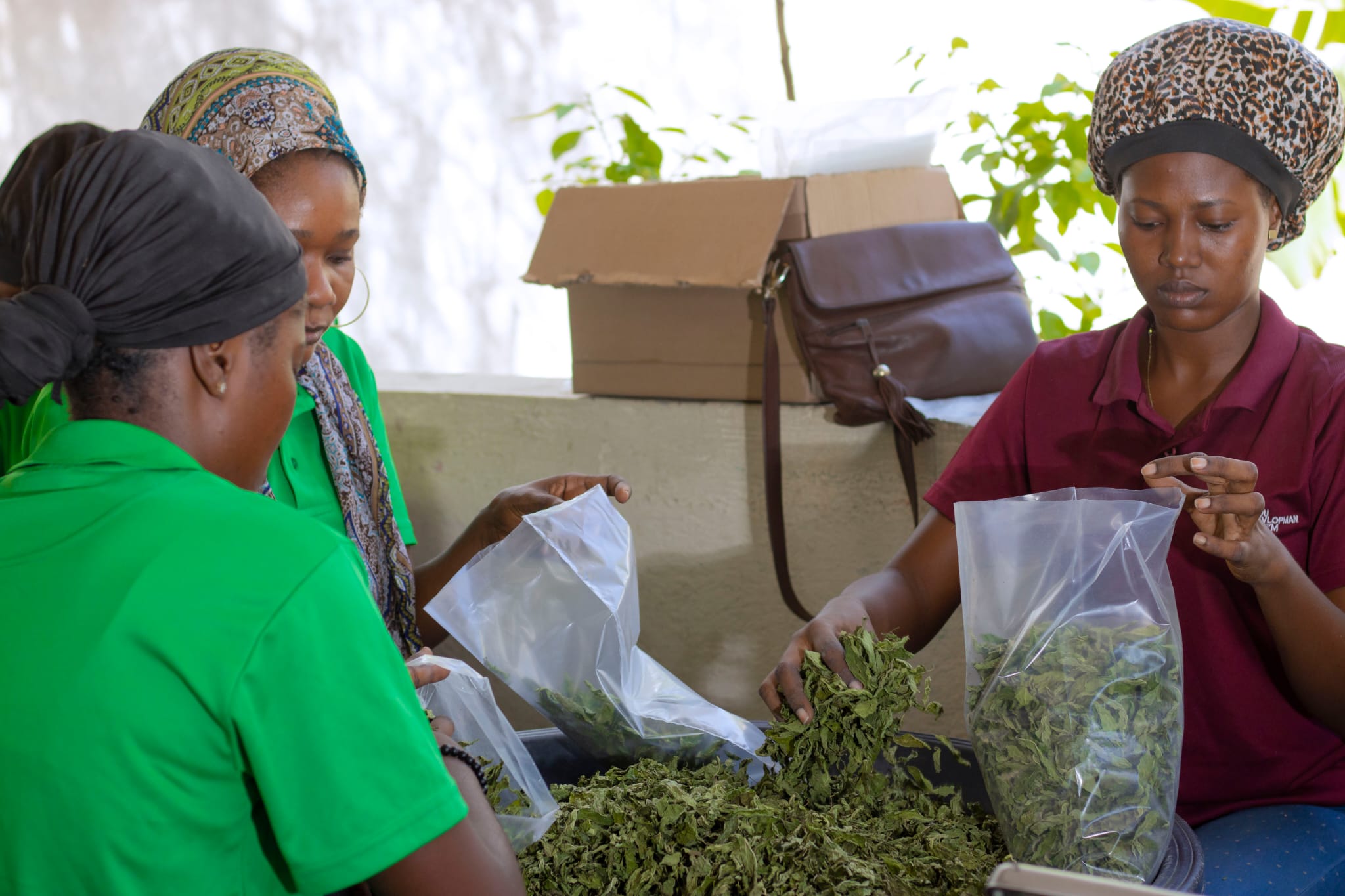
Ayiti Vizyon employees packaging the « lalo » for export.
Lalo – also known as Corchorus olitorius – is already very popular in several parts of the country.
A « Lalo de l’Artibonite festival » will celebrate its ninth edition in December, according to its founder, Jean-Ronald Armand.
In 2019, the traditional method of preparation originating from this region was inscribed on the Register of Intangible Cultural Heritage of Haiti.
The following year, Haiti produced 234.74 tons of lalo, according to the agri-food site « Espace Agro. »
Due to the drought, this production fell by 11% in 2013.
In a national context of chronic unemployment, lalo can create jobs.
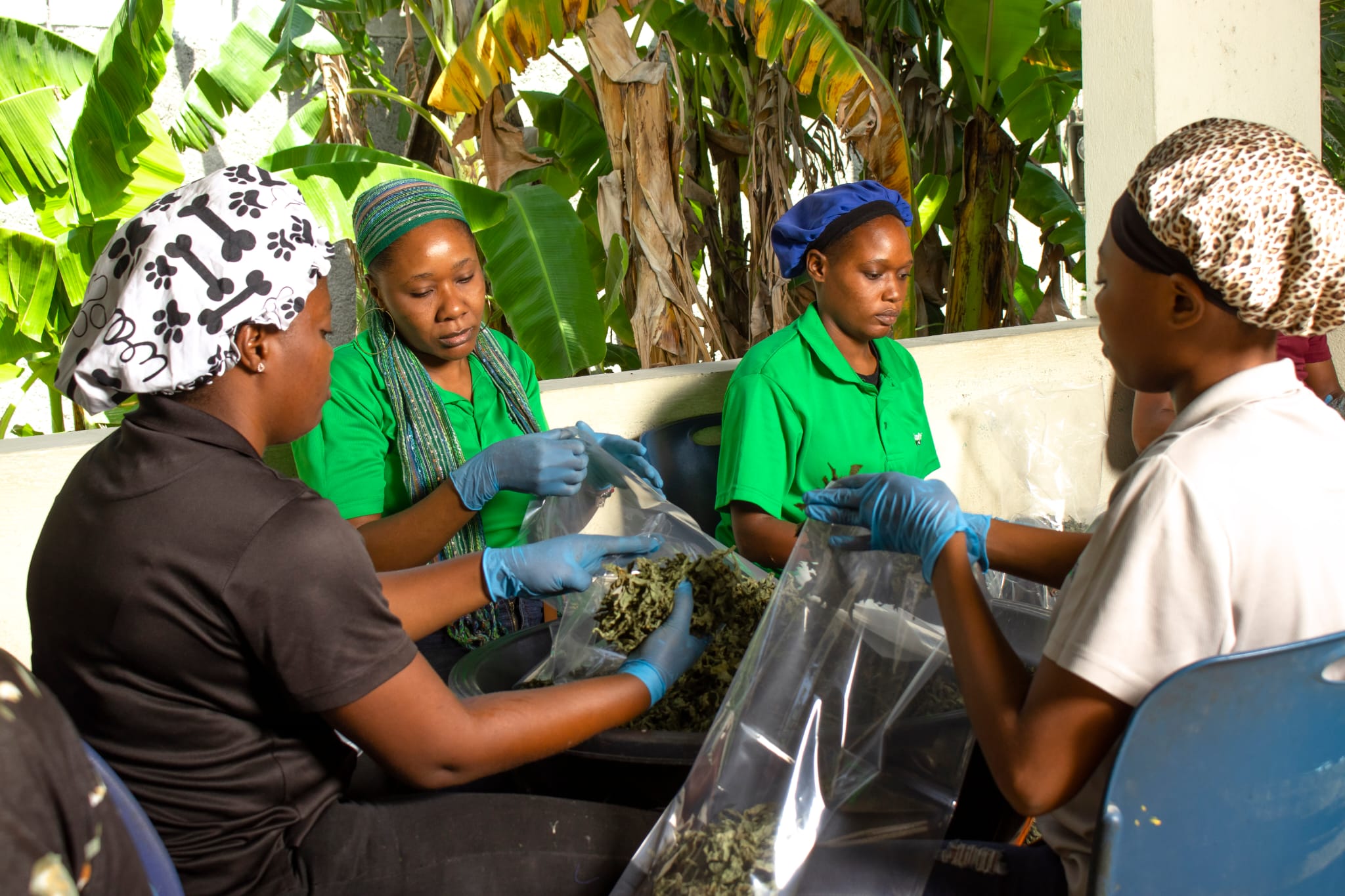
Several Ayiti Vizyon employees packaging « lalo » for export.
The « Ayiti Vizyon » production line employs 2,545 people, according to its founders.
Dieupromène Antoine grows the plant, which sells for 1,250 gourdes a basket.
Antoine is also responsible for the management of the lalo in Marin, a part of Verettes, before it is transferred to Port-au-Prince for embarkation to the United States.
30 people assist in the cleaning and drying of the vegetable.
Read also : « L’or brun » fait encore la fierté de certaines régions du pays
For the month of June, for example, it provided 420 baskets of lalo to « Ayiti Vizyon. »
Ednoi Jean-Baptiste of the third communal section of Petite-Rivière-de-l’Artibonite is also one of the main suppliers for the company.
The man says he hired 10 people to clean and sun dry the product.
Farmers in the area rely on lalo for their livelihoods.
Wilna Louis-Jeune supplies 50 bags of dried lalo a week, along with about 30 family members.
« Growing lalo is my main occupation, » she tells AyiboPost.
Production without the use of harsh chemicals can be a strong selling point for some foreign buyers.
Agronomist Yguens Michel supervises the work on two hectares of land at the Hands Together farm in Savane Désolée.
« The lalo produced for [Ayiti Vizyon] on our farm is produced under organic conditions, » says Michel.
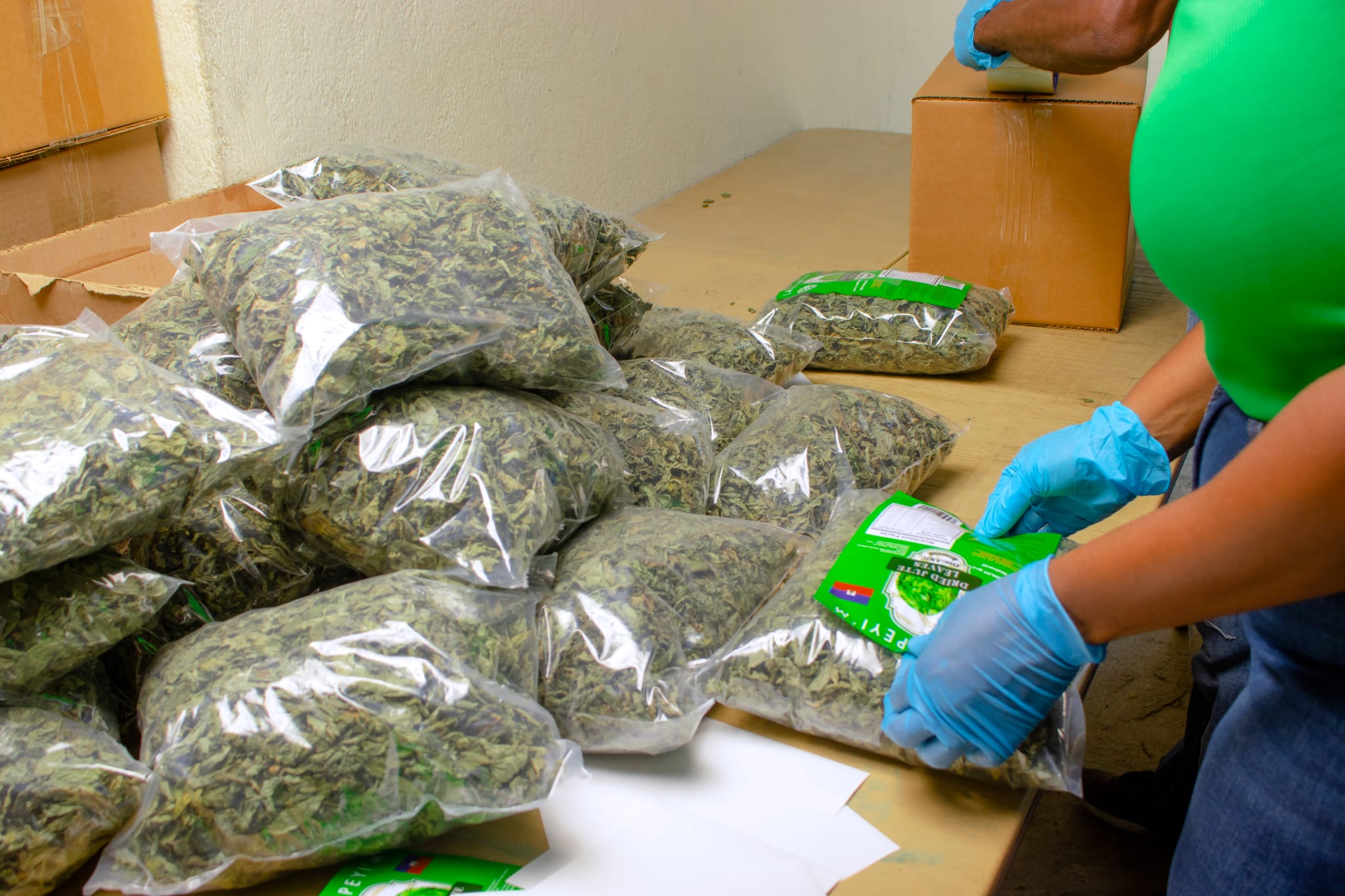
An employee puts a label on a packet of « lalo. »
To ensure the distribution of lalo in the United States, Fabias Voltaire says that he has created a parallel entity called Caribbean Green LLC.
« Ayiti Vizyon » has also partnered with nearly 300 Protestant churches in the Haitian community to promote lalo.
The lalo produced for [Ayiti Vizyon] on our farm is made under organic conditions.
– Agronomist Yguens Michel
Despite this relative success, the product faces insecurity, scarcity and rising fuel prices, as well as problems related to the lack of agricultural infrastructure.
A company named Planet Agricole S.A., located in Savane Désolée was forced to cease operations in 2022 due to insecurity in the Artibonite department, according to its general manager, Patrick Joseph.
The company devoted 15 hectares to the production of lalo.
But the 20 employees needed for operations encountered tremendous difficulties getting to the farm – which made the closure inevitable, Joseph points out.
Several communes in the Artibonite department have been subjected to abuses by armed gangs since at least April 2019.
Many farmers have fled their land in this department, considered to be the bastion of rice and lalo production in Haiti.
Up to 3,000 hectares of farmland were abandoned in 2023 compared to 2018.
Read also: Artibonite: an agricultural area that has become a valley of crimeWho is Ernest Muscadin?
The CEO of Planet Agricole S.A. is waiting for the security climate to be restored to resume activities.
In the meantime, players in the sector are calling on the State to intervene.
Research in the lalo sector is needed in order to determine the best conditions for production and conservation, suggests the former director general of the Organization for the Development of the Artibonite Valley (ODVA), Volny Paultre.
According to the agronomist, the public authorities must « show much more attention and interest to support the process of strengthening the production of lalo in Haiti. »
Cover image: An employee of Ayiti Vizyon affixes a label to a package of « lalo ».
Keep in touch with AyiboPost via:
► Our Telegram channel : click here
► Our WhatsApp channel : click here
► Our WhatsApp Community : click here



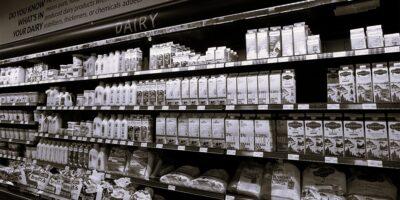

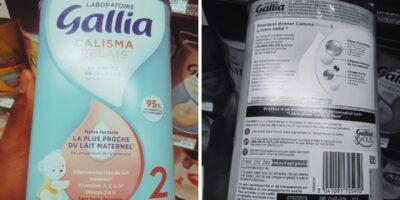

Comments